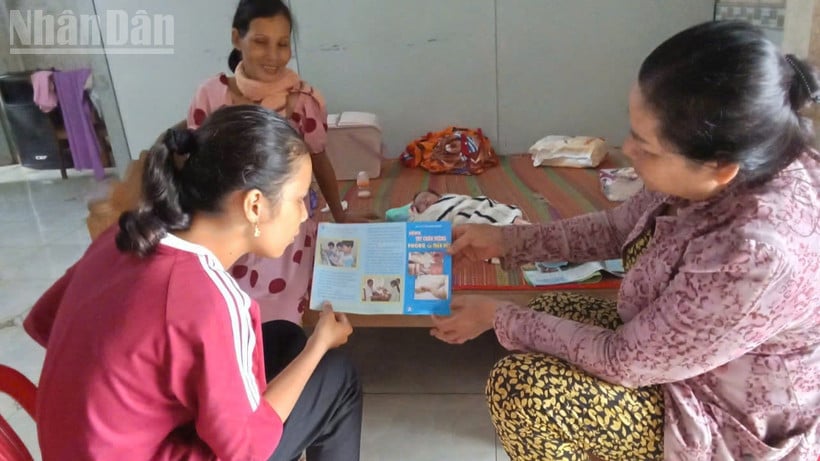
Ms. Dieu Thi Thuy (left cover) guides people on reproductive health care at home.
Following the winding red dirt roads that appear and disappear in the vast rubber forests in the area bordering Cambodia, Ms. Thuy quietly does her favorite job, which is welcoming newborn babies and promoting and mobilizing people to take care of their health scientifically .
To the locals, Ms. Thuy is not only a "midwife", but also a mother, a sister, a companion on the arduous journey of motherhood of the Xtieng women here.
Silent dedication
“On a night of pouring rain, when the whole village had fallen asleep, I was startled by a hurried call outside my gate. When I woke up, I knew it was a family member of a pregnant woman who had come to 'call for help in giving birth'. 'Sister, save my wife! She is giving birth for the second time and is in terrible pain!' Without hesitation, I put on a raincoat, grabbed a simple medical kit and rushed into the night rain,” Ms. Thuy recounted about a time she helped with a maternity delivery in 2001.
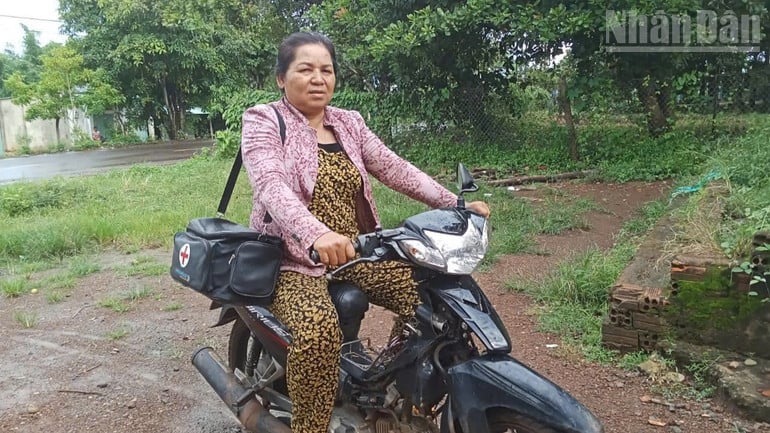
Ms. Dieu Thi Thuy often visits families in the village to guide on reproductive health care.
According to Ms. Thuy, at that time, Hung Phuoc commune was a remote, border area, and healthcare was not yet developed. It was raining, the road was slippery, dark, and all around there was only the sound of wind and insects in the mountains. Upon arriving, she helped the mother give birth to twin girls, each weighing less than 2kg. She cut and sewed the perineum, monitored the postpartum, and worked hard with the mother and children until everything was okay.
“This was the first case after being trained at Tu Du Hospital ( Ho Chi Minh City). It felt like winning the lottery! Happy, nervous, but very happy,” Ms. Thuy recalled and said.
Ms. Thuy was born into a poor family. Her husband was seriously ill and her two children were still young. Yet, she still devoted herself to being a midwife in the village, a job without a fixed salary. She did not complain or get discouraged, because each call in the night, each cry at birth, was a message for her to keep going.
Up to now, Ms. Thuy cannot count how many times she has crossed forests, streams, and walked many kilometers to reach pregnant women in the middle of the night. She also cannot remember how many cases she has helped, but she only knows that at least 7 times she has saved the lives of both mother and child in life-threatening situations.
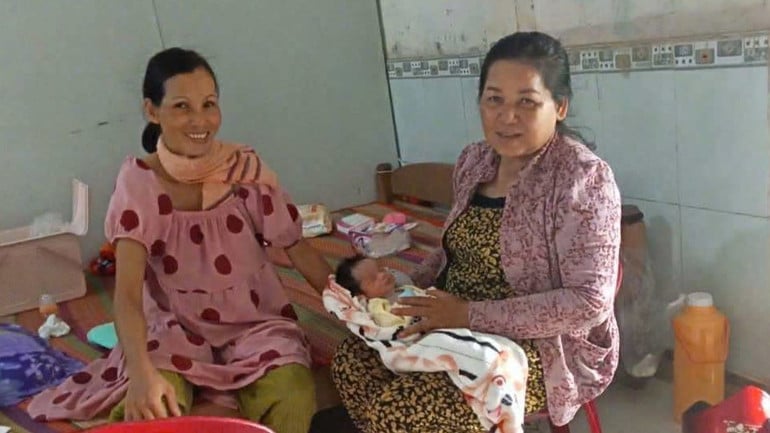
Ms. Dieu Thi Thuy (left cover) takes care of her newborn baby
“There were days when I left in the morning and didn’t come back until 1am the next morning. My husband objected because he was worried about food and money. But if I didn’t go, who would help the women in the village? I speak Xtieng, understand the customs, and can easily persuade people to go for medical check-ups and give birth safely. I am happy if I can help someone,” she shared in a sincere, warm voice that matched her love for the villagers.
Another special birth that Ms. Thuy and Dr. Bui Thi Thu Lieu (Head of Hung Phuoc Commune Health Station) have never forgotten for decades. That was the case of mother Dieu Lien who gave birth to her first child at the station, but (the 2.7kg baby boy) suffocated at birth. Without specialized equipment, they were forced to use their mouths to suck the fluid from the newborn's nose and give mouth-to-mouth resuscitation continuously. When the child burst into tears, everyone seemed to explode.
“Four days later, Ms. Thuy still visited the mother’s home to take care of her, giving instructions and care, as if she were a relative. The family still calls her the baby’s second mother,” Dr. Lieu recounted.
Those are just two of the many tearful and laughter-filled stories that Ms. Thuy has experienced.
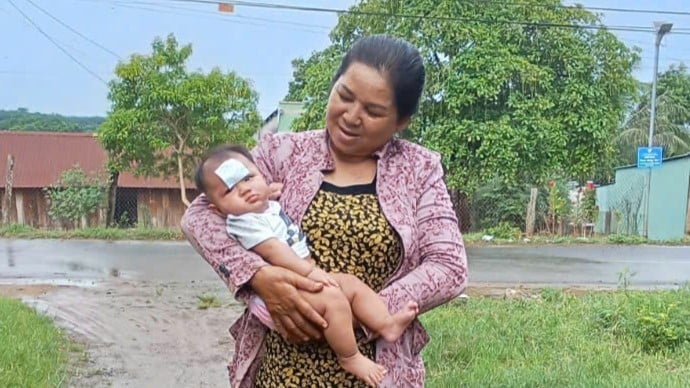
Ms. Dieu Thi Thuy's joy is that her children are born healthy and develop well.
Contribute to changing perceptions
In order to reduce the rate of obstetric complications, reduce maternal and neonatal mortality in ethnic minority areas, since 1997, Tu Du Hospital (Ho Chi Minh City) has proactively invested and sought funding for training "village midwives" for ethnic minorities, where access to healthcare is still difficult and the practice of giving birth at home is still common. Ms. Thuy was one of the participants in the 1999 "village midwives" training program organized by Tu Du Hospital.
In addition to basic expertise, Ms. Thuy is also trained in knowledge to encourage pregnant women to have regular check-ups, give birth at medical facilities, and detect dangerous signs early for timely referral.
Returning to Phuoc Tien hamlet, Hung Phuoc commune used to have a very high rate of home births; old customs, fear, and lack of knowledge caused many pregnant women to not go for prenatal check-ups, not access medical care, and many accidents occurred. From the knowledge she received from training, Ms. Thuy has contributed to gradually changing people's awareness of reproductive health.
To do this, Ms. Thuy persistently went to each house, spoke each word, and explained in her mother tongue to help pregnant women understand the importance of prenatal check-ups, vaccinations, nutrition, etc.
Ms. Thuy comes to the villagers like a relative, sharing their difficulties and hardships so no one feels shy.
Ms. Dieu Soa, an Xtieng ethnic (Hung Phuoc commune, Dong Nai province), a young pregnant woman who was helped by Ms. Thuy, was moved when talking about her "midwife": "I am not fluent in Vietnamese and did not know anything when I was pregnant. Thanks to Ms. Thuy, she came to my house to advise and guide me on reproductive health and child care, and at the same time encouraged me to go to the health station to check my pregnancy and give birth here for safety."
Midwifery graduate Le Thi Thanh Tam, from Bu Dop Regional Health Center, said that the entire region has only 6 village midwives trained from Tu Du Hospital. They are the bridge between the health sector and ethnic minorities in remote areas. Among them, Ms. Thuy is a particularly dedicated person, contributing to changing birth habits and improving reproductive health for the entire community. Not only being a "midwife", Ms. Thuy is also active in disease prevention, expanded vaccination, and population propaganda.
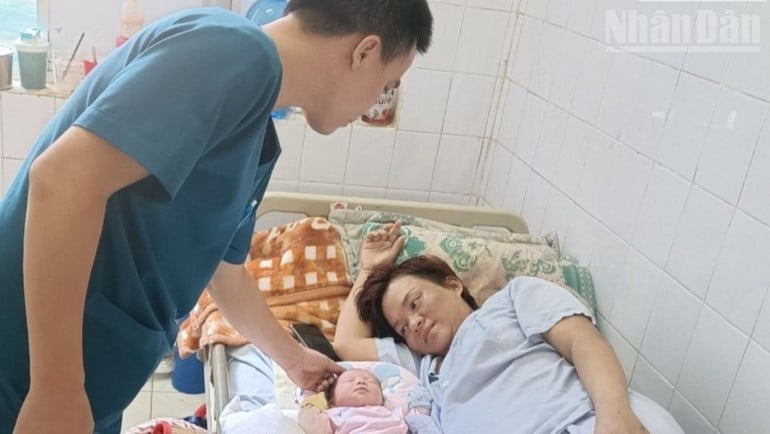
Thanks to the campaign, people have proactively chosen to give birth at medical facilities to ensure the health of mother and child.
Although the salary is still very low, for more than two decades, she has never asked for anything other than the safety of mother and baby. “Ms. Thuy is an indispensable person in the reproductive health care work in the locality. Thanks to her, prenatal check-ups are regularly reminded, pregnant women are closely managed, and outdated customs are gradually eliminated. That is something that the health sector highly appreciates,” affirmed Bachelor Le Thi Thanh Tam.
For Ms. Thuy, the greatest reward is not a certificate of merit, a certificate of merit or a title, but the bright smiles of mothers who have safely given birth, the cries of newborn babies, and the change in thinking about reproductive health care of her fellow countrymen...
Through her quiet but compassionate work, Ms. Thuy has contributed significantly to the health care work for the people, especially ethnic minorities in the border areas of Dong Nai province.
NHAT SON
Source: https://nhandan.vn/lang-le-cong-hien-vi-suc-khoe-cong-dong-o-noi-bien-gioi-post916904.html


![[Photo] Da Nang residents "hunt for photos" of big waves at the mouth of the Han River](https://vphoto.vietnam.vn/thumb/1200x675/vietnam/resource/IMAGE/2025/10/21/1761043632309_ndo_br_11-jpg.webp)


![[Photo] Prime Minister Pham Minh Chinh received Mr. Yamamoto Ichita, Governor of Gunma Province (Japan)](https://vphoto.vietnam.vn/thumb/1200x675/vietnam/resource/IMAGE/2025/10/21/1761032833411_dsc-8867-jpg.webp)



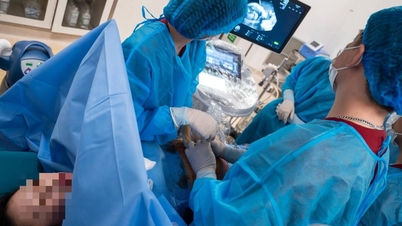
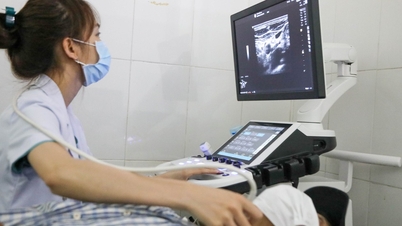









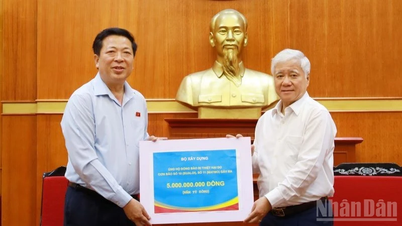
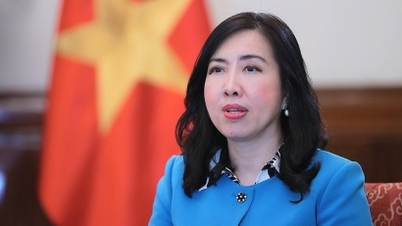


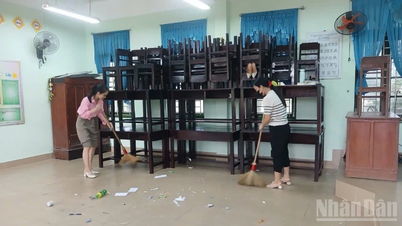
![[Photo] Prime Minister Pham Minh Chinh meets with Speaker of the Hungarian National Assembly Kover Laszlo](https://vphoto.vietnam.vn/thumb/1200x675/vietnam/resource/IMAGE/2025/10/20/1760970413415_dsc-8111-jpg.webp)



























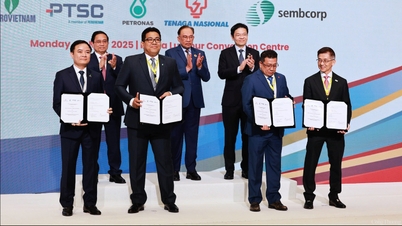

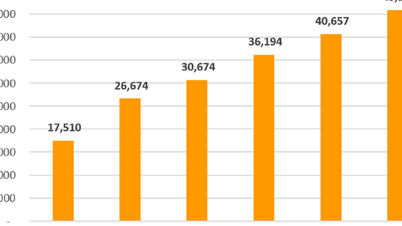
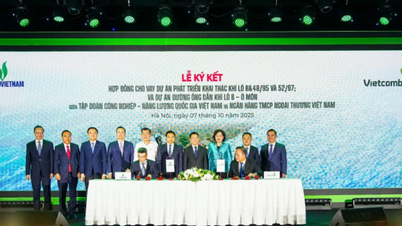









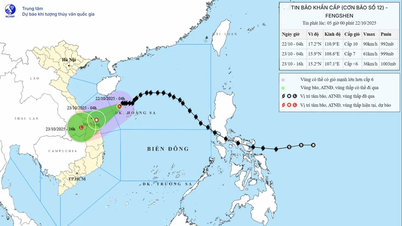







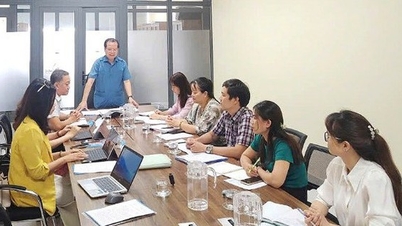


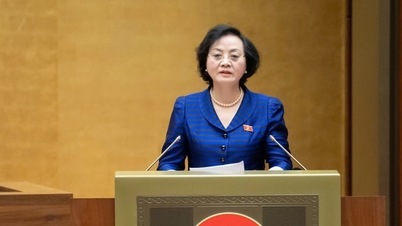

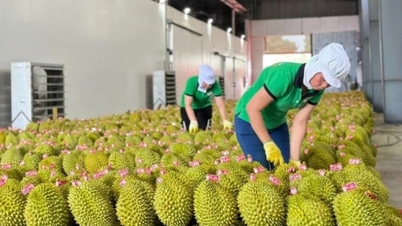

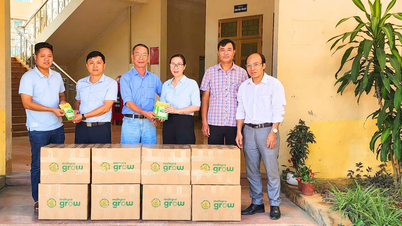



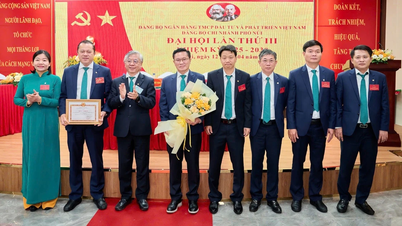

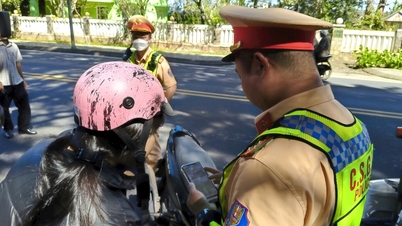















Comment (0)